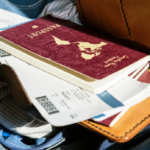Applying for a Schengen visa can be a nerve-wracking process. With strict requirements and varying approval rates, applicants often wonder: What is the success rate of the Schengen visa appeal? If your visa application is rejected, don’t lose hope. A well-prepared appeal can turn the tide in your favor. In this guide, we will break down the essential details, offer actionable tips, and highlight how to maximize your chances of success.
Understanding Schengen Visa Appeals
What Is a Schengen Visa Appeal?
A Schengen visa appeal is a formal process that allows you to contest the rejection of your visa application. If your initial application is denied, the embassy or consulate provides a letter stating the reasons for the rejection. Using this information, you can submit an appeal to address the specific issues and request a reconsideration of your application.
Why Are Schengen Visas Denied?
There are various reasons why Schengen visa applications are rejected, including:
- Incomplete or inaccurate documentation
- Failure to meet financial requirements
- Suspicion of overstaying
- Insufficient travel insurance
- Unclear purpose of travel
Understanding these reasons is crucial for crafting a successful appeal.
The Success Rate of Schengen Visa Appeals
What Is the Success Rate of the Schengen Visa Appeal?
While exact figures vary by country and individual circumstances, studies suggest that the success rate of Schengen visa appeals ranges between 30% and 50%. However, your chances significantly increase if you address the specific reasons for rejection, provide additional supporting documents, and adhere to the appeal process requirements.
Factors influencing the success rate include:
- The quality of your appeal letter
- The strength of your supporting evidence
- The specific embassy or consulate handling your case
Step-by-Step Guide to Filing a Schengen Visa Appeal
1. Read the Rejection Letter Carefully
Your rejection letter is the foundation of your appeal. It outlines:
- Reasons for denial
- Appeal instructions
- Deadlines for submitting your appeal
Carefully analyze this document to understand where your application fell short.
2. Gather the Necessary Documents
Compile a strong set of documents to support your appeal. These typically include:
- A formal appeal letter
- Additional supporting evidence (e.g., financial statements, travel bookings, or employer letters)
- A copy of your rejection letter
- A copy of your original application and submitted documents
3. Write a Convincing Appeal Letter
Your appeal letter is your opportunity to present your case. It should:
- Be addressed to the correct embassy or consulate
- Clearly state your intention to appeal
- Address each reason for rejection with detailed explanations
- Include supporting evidence for your claims
- Be professional, concise, and free of grammatical errors
4. Submit Your Appeal
Submit your appeal as per the instructions in your rejection letter. This may involve:
- Sending your documents via mail
- Submitting them in person
- Using an online portal (if available)
5. Follow Up
After submitting your appeal, keep track of its status. Most embassies take 2-4 weeks to process appeals, though this timeline can vary.
Tips to Increase the Success Rate of Your Appeal
- Seek Professional Help: Consult an immigration lawyer or visa expert for guidance.
- Double-Check Your Documents: Ensure that all documents are complete and accurate.
- Provide Additional Evidence: Strengthen your case with new or updated documents.
- Be Honest and Transparent: Misrepresentation can lead to further complications.
- Adhere to Deadlines: Appeals submitted after the deadline are usually not considered.
Frequently Asked Questions
What Is the Timeframe for Submitting a Schengen Visa Appeal?
The timeframe varies by country but is typically between 15 and 30 days from the date of rejection. Check your rejection letter for specific deadlines.
Can You Reapply After a Rejected Appeal?
Yes, if your appeal is unsuccessful, you can reapply for a Schengen visa. However, it’s essential to address the reasons for rejection before submitting a new application.
Which Countries Have the Highest Visa Rejection Rates?
Some Schengen countries are known for stricter visa approval rates, including:
- France
- Germany
- Spain
Being meticulous in your application is particularly important when applying to these countries.
Conclusion: Your Chances of Success
So, what is the success rate of the Schengen visa appeal? While it varies, a well-prepared appeal significantly improves your odds. By understanding the rejection reasons, gathering strong evidence, and presenting a professional appeal, you can turn a rejection into an approval. Remember, persistence and preparation are key.
Related Post:- Ultimate Guide to China Visa Application













